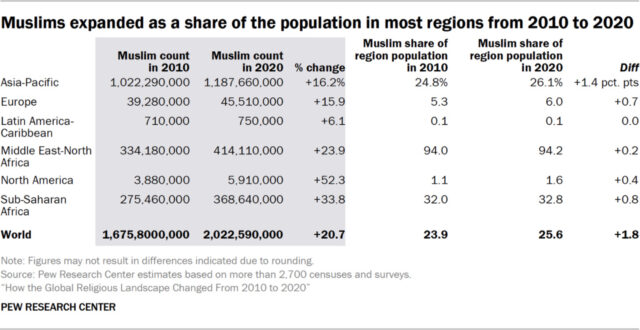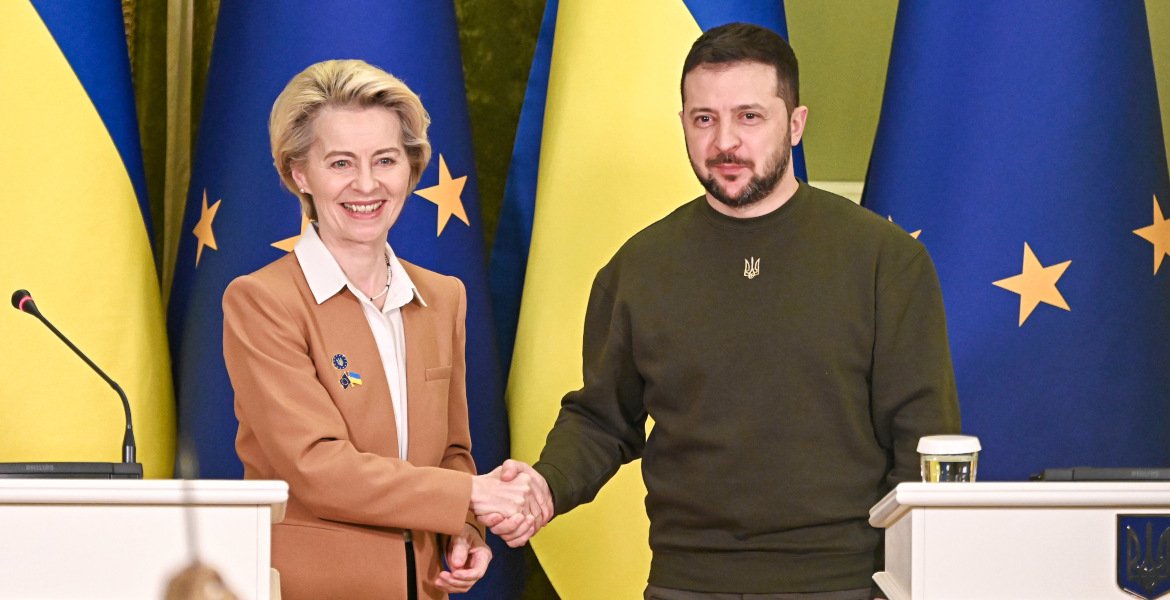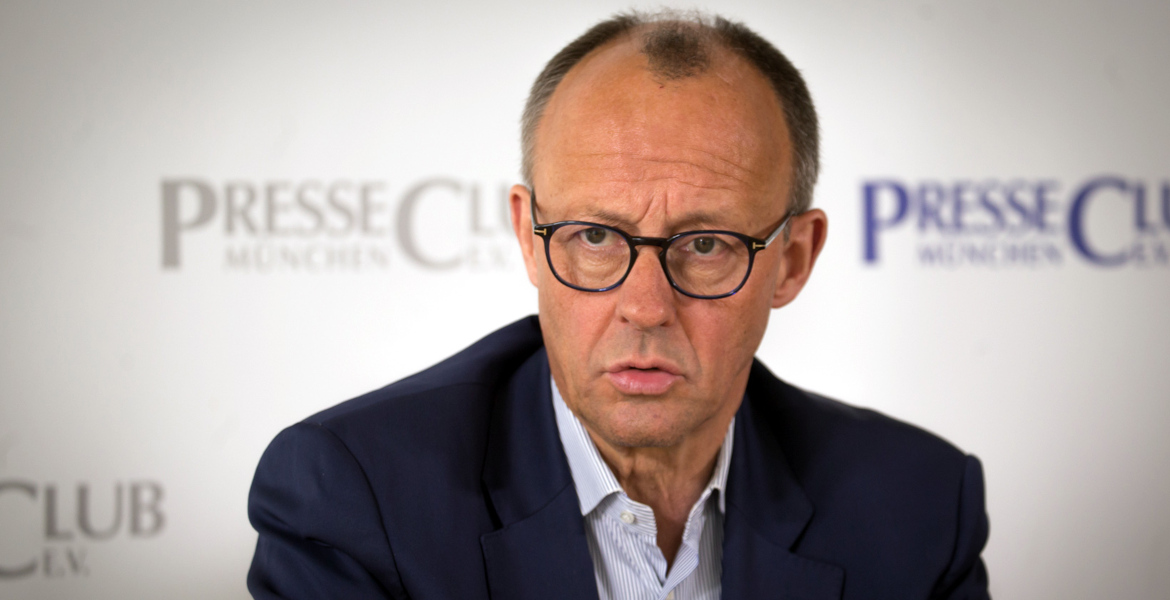Islam grew about three times faster than Christianity between 2010 and 2020. This is according to new data from the Pew Research Center, which points to higher birth rates and lower rates of conversion as the main explanations.
The global Muslim population increased by almost 21 percent over the past decade. Christianity grew significantly slower, at around 6 percent over the same period. Islam thus grew twice as fast as the world's population as a whole, which increased by 10 percent.
According to the study, Islam also gained more new followers than all non-Muslim religions combined during the period.
Among the reasons for this development, the higher fertility rate among Muslim women and the lower average age of the Muslim population are particularly mentioned. Between 2015 and 2020, a Muslim woman had an average of 2.9 children, compared with 2.2 children for women who did not belong to Islam.
The net effect of people joining or leaving Islam was small – both groups accounted for about 1 percent in the 2010s.

Expanding rapidly
Christianity remains the world's largest religion, with 2.3 billion followers in 2020. Islam is the second largest, with 2 billion. But while the number of Christians increased, the religion's share of the world's population declined by almost 2 percent during the period.
According to the study, the growth of Christianity has been slowed by a large number of people leaving the religion to become non-religious. For every 100 adults who grew up as Christians, the religion lost an average of 11.6 people.
– Islam is set to grow to become the world's largest religion in years ahead, unless trend lines shift, said Conrad Hackett, senior researcher at the Pew Research Center and one of the report's authors, according to The Washington Post.
He describes the development as “striking” and notes that Muslims and Christians are now much closer in number because Islam is expanding faster than any other major religion.
The survey is based on thousands of census data and surveys in 201 countries. It covers seven groups: Christians, Muslims, Hindus, Buddhists, Jews, other religions, and people with no specific religious affiliation.





